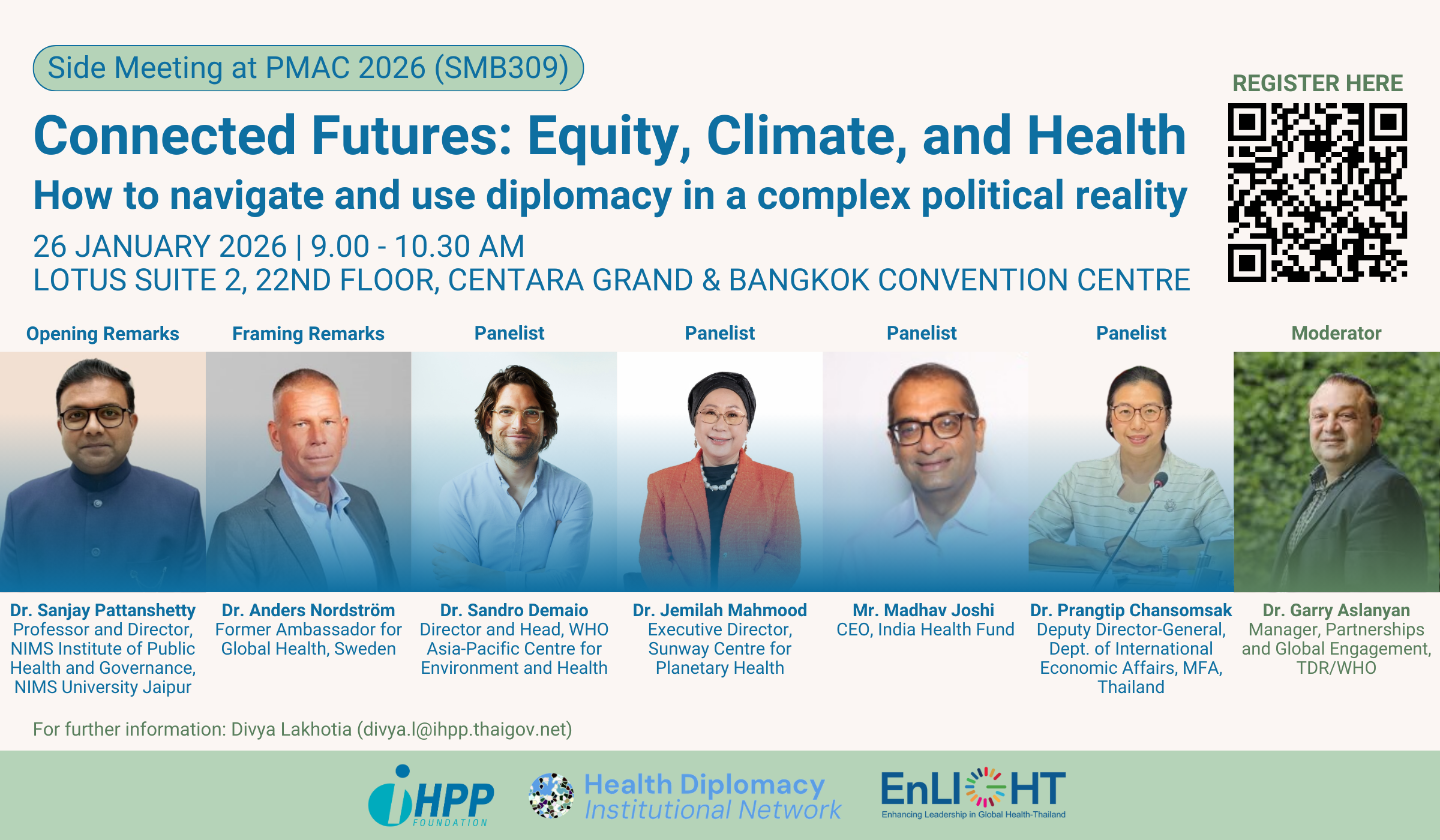Side Meetings
SMB309
Connected Futures: Equity, Climate, and Health – How to navigate and use diplomacy in a complex political reality
26
Jan
- International Health Policy Program (IHPP) Foundation; Health Diplomacy Institutional Network

The convergence of climate change, technological innovation, and demographic transition is reshaping health outcomes and equity worldwide. Climate change threatens health through rising heat-related mortality, vector-borne diseases, and food insecurity, disproportionately affecting vulnerable populations. At the same time, rapid technological change—from AI-enabled diagnostics to digital health platforms—offers opportunities to strengthen resilience, but risks widening inequities if access remains uneven. Demographic transitions amplify these pressures. These challenges transcend national borders. They require international politics and diplomacy for health and for climate, where climate negotiations, digital governance, and demographic policy are integrated into health strategies and where synergies are sought.
The intersection of climate change, health, and demographic transitions presents complex challenges globally. Vulnerable populations often face disproportionate health burdens due to environmental changes, technological gaps, and inequities in resource distribution. While international frameworks for instance the UNFCCC, Paris Agreement, WHO resolutions, and Sustainable Development Goals (SDGs) provide guiding principles, the coordination across health, technology, and demographic policies remains fragmented. Understanding the role of diplomacy (health and climate), international agreements, and equity-focused policies is crucial to ensure the health of our planets as well as of people is protected while facilitating sustainable technological adaptation and demographic management.
- Deliberate the intersections of health, climate, technology, and demographic change.
- Highlight the role of international politics and diplomacy for health, as well as climate in addressing cross-border challenges.
- Explore equity-centered approaches to regional and global governance, financing, and technology sharing.
- Discuss mechanisms to align treaties, declarations, and initiatives for a unified planetary health approach.

